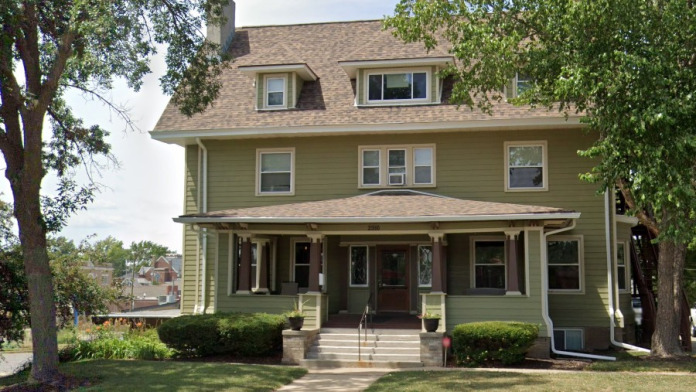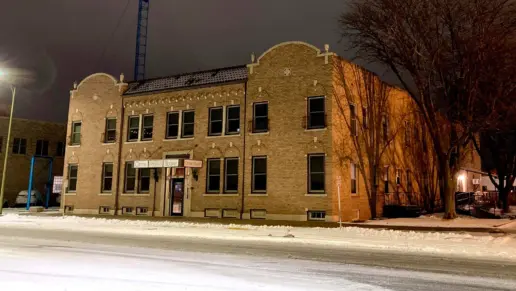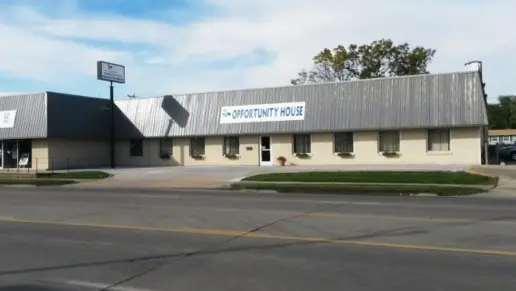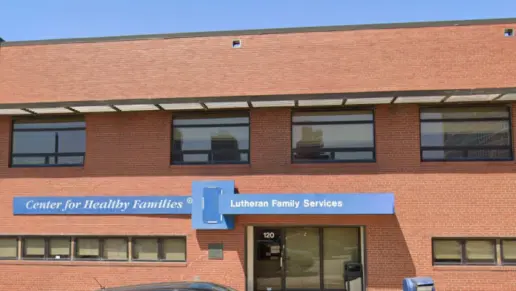Thanks to this organization I am now closer to God and free of addictions, I do not have enough words to thank them for what they did for me. Amazing program!
About Sheepgate
Sheepgate formerly Teen Challenge of the Midlands - Crisis is a transitional home in Omaha, Nebraska. It’s part of the larger Sheepgate addiction recovery program, which used to be called Teen Challenge of the Midlands. Sheepgate is a Christian faith based treatment program for drug and alcohol addiction, and this Omaha transitional home is part of its program for adult men.
Here’s how it works. If you’re a man who has chosen Sheepgate for help with your substance use disorder, you’ll have a seven month program in Colfax, Iowa. This is a residential rehab program so you’ll live on the property while you get therapy, learn about addiction, and develop relapse prevention skills.
After those seven months, you’ll move to this transitional home in Omaha. It’s a beautiful and comfortable historical home where you’ll live with others in your program. Some call this type of facility a sober living home. Either way, the goal is to help you transition from rehab into independent sober life. Sheepgate calls this your re-entry period. At this Omaha center, you’ll have a structured living environment while you gather the puzzle pieces of your new life, like getting involved in a local church, finding a full-time job, and getting used to being in society again.
As helpful as rehab is, it can be jarring to go from a setting where you’re surrounded by recovery back to the hustle and bustle of society. A place like Sheepgate’s Omaha transitional home can make that transition easier and safer for your sobriety.
Latest Reviews
Rehab Score
Gallery

Location
Other Forms of Payment
Self-pay involves paying for treatment out of your own pocket. You can use savings or credit, get a personal loan, or receive help from family and friends to fund your treatment. If you don't have insurance or your insurance plan doesn't cover a specific program, self-pay can help ensure you still get the care you need.
Medicaid is a state based program that helps lower-income individuals and families pay for healthcare. Medicaid covers addiction treatment so those enrolled can use their coverage to pay for rehab. When a program accepts Medicaid the client often pays very little or nothing out of their own pocket.
Medicare is a federal program that provides health insurance for those 65 and older. It also serves people under 65 with chronic and disabling health challenges. To use Medicare for addiction treatment you need to find a program that accepts Medicare and is in network with your plan. Out of pocket costs and preauthorization requirements vary, so always check with your provider.
Addiction Treatments
Levels of Care
Treatments
The goal of treatment for alcoholism is abstinence. Those with poor social support, poor motivation, or psychiatric disorders tend to relapse within a few years of treatment. For these people, success is measured by longer periods of abstinence, reduced use of alcohol, better health, and improved social functioning. Recovery and Maintenance are usually based on 12 step programs and AA meetings.
During drug rehab in Nebraska, you'll participate in therapies that address the many issues that contribute to addiction. Treatment includes physical, mental, emotional, and relational aspects. These methods provide the tools you need to achieve long-term recovery.
Opioid rehabs specialize in supporting those recovering from opioid addiction. They treat those suffering from addiction to illegal opioids like heroin, as well as prescription drugs like oxycodone. These centers typically combine both physical as well as mental and emotional support to help stop addiction. Physical support often includes medical detox and subsequent medical support (including medication), and mental support includes in-depth therapy to address the underlying causes of addiction.
Substance rehabs focus on helping individuals recover from substance abuse, including alcohol and drug addiction (both illegal and prescription drugs). They often include the opportunity to engage in both individual as well as group therapy.
Programs

Clinical Services
Group therapy is any therapeutic work that happens in a group (not one-on-one). There are a number of different group therapy modalities, including support groups, experiential therapy, psycho-education, and more. Group therapy involves treatment as well as processing interaction between group members.
In individual therapy, a patient meets one-on-one with a trained psychologist or counselor. Therapy is a pivotal part of effective substance abuse treatment, as it often covers root causes of addiction, including challenges faced by the patient in their social, family, and work/school life.
Contact Information
2916 North 58th Street
Omaha, NE 68104


